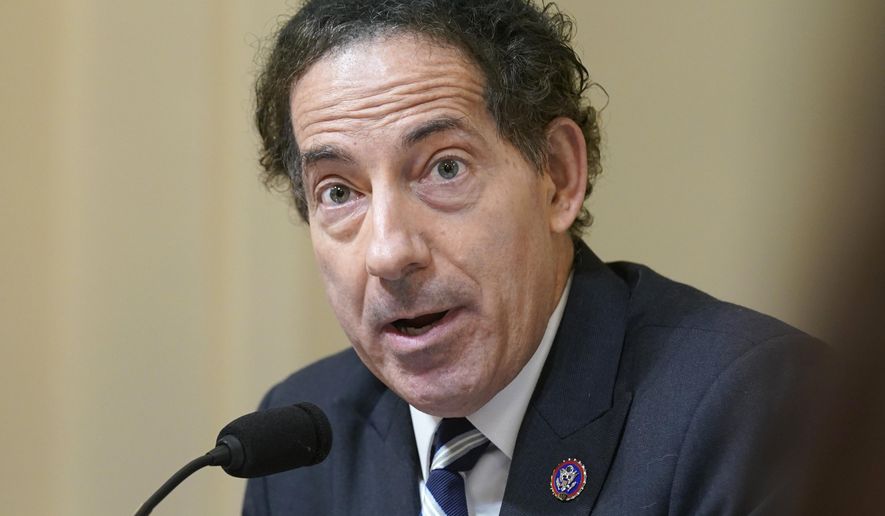Democratic-run states have increasingly adopted paid family leave laws and more are poised to guarantee the benefit for workers if, as expected, it isn’t included in President Biden’s massive social welfare bill.
A decade ago, paid family leave barely registered in political debate in America. But it has quickly become a top priority for the Democratic Party, though Congress is struggling in its first major push to create a federally subsidized universal benefit of as much as 12 weeks of paid time off to care for newborns, sick relatives or personal health issues.
Massachusetts, Hawaii, Colorado, California, New Jersey, New York, Oregon, Rhode Island and Washington are among the states with paid family leave laws on the books.
Most of these state programs are funded by government-mandated payroll taxes paid by employees and employers.
Proponents say it is a no-brainer that workers get paid time off to deal with family health issues.
“The U.S. is the only industrialized country to not guarantee some form of paid family leave for workers, and I think that is long overdue,” said Maryland state Sen. Antonio Hayes, a Baltimore Democrat who is sponsoring a paid family leave bill in the upcoming legislative session.
More states are expected to adopt laws providing some form of paid family leave as prospects dim for the Democrat-run Congress to deliver it as a federal benefit in Mr. Biden’s Build Back Better Act.
“If Build Back Better comes out of Congress without paid family leave, you’re going to see a number of states come out with their own versions because it is a popular program,” said Democratic strategist Brad Bannon.
Rep. Jamie Raskin, Maryland Democrat, cheered state lawmakers for taking matters into their own hands.
“The great thing about American federalism is when one door closes, another door can open to progress,” he said in an interview. “We were obviously hopeful that we could get a sufficient head of steam in Congress to make it happen, but in the absence of that, let’s make it happen at the state level.”
Mr. Hayes’ bill in Maryland would create a taxpayer-financed insurance fund administered by the state’s Labor Department.
The program would allow up to 12 weeks of paid time off for workers after the birth or adoption of a child. Under the plan, paycheck deductions from participating employees, employers and self-employed would fund the insurance pool.
Connecticut is poised to implement its new program in January for up to 12 weeks of paid family leave. The program was signed into law by Democratic Gov. Ned Lamont in 2019, making the state the eighth in the country to enact such a program.
The benefit is funded by a 0.5% payroll tax on workers.
New York Gov. Kathy Hochul, whose state provides eight weeks of paid family leave for workers, said a patchwork of state programs is inadequate for the U.S.
“I actually feel bad for the rest of the nation that has not caught up to us,” Mrs. Hochul said earlier this month. “We need a national policy on paid family leave. Do not leave it up to the individual state legislatures to do the right thing.”
The 1993 federal Family and Medical Leave Act currently guarantees workers at large companies get 12 weeks of unpaid leave, but most workers don’t use it because they can’t afford to go without paychecks, according to studies.
Critics of mandatory paid family leave warn of high costs imposed on businesses, the potential for employers to avoid hiring women in child-bearing years and possible worker abuse of the benefit.
Mr. Biden’s nixed a plan for 12 weeks of paid family and medical leave in his roughly $1.75 trillion social welfare and climate bill. He made the move to reduce the overall cost of the massive bill despite government-subsidized paid family leave emerging a top priority for his Democratic Party.
House Democrats added to the bill a scaled-back program of four weeks of paid leave for workers to attend to personal and family health issues. But that smaller benefit faces an uphill battle in the Senate, where it takes just one Democratic vote to kill the bill, and at least one of them, Sen. Joe Manchin III of West Virginia, opposes the paid family leave plan.
Paid family leave was one of the most popular aspects of the Build Back Better bill, according to a CBS/YouGov poll in October.
Behind lowering prescription drug prices and Medicare expansion, paid family leave had 73% of support from respondents.
The poll was conducted nationwide among 2,054 adults. It had an error margin of +/- 2.6 percentage points.
The goal is not just for liberals. Conservatives are offering up plans too, but they favor an employer-paid family leave rather than having taxpayers subsidize the workplace benefit.
House Republicans proposed using federal incentives for employers to offer more paid family leave but the plan was dead on arrival in the Democrat-run Congress.
“Working families deserve access to paid leave and child care tailored to their needs, not Washington’s,” said Rep. Kevin Brady, Texas Republican, who is the ranking member of the House Ways and Means Committee.
Paid family leave is a relatively new political goal but it quickly gained popularity. Congress’s effort to pass such a proposal is the first attempt of its kind.
“I think Biden’s the first president to make it a big national issue,” Mr. Bannon said. “So, I don’t think there’s really a national track record in this battle. I don’t remember Obama or the Clintons making it an issue. I think this is fresh territory in terms of it becoming a big national push.”
• Mica Soellner can be reached at msoellner@washingtontimes.com.




Please read our comment policy before commenting.